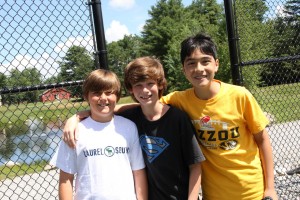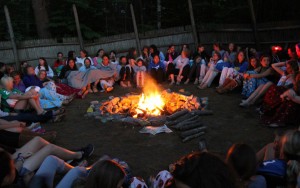A recent New York Times story calmly – but strongly — extolled “the joy of quiet.”

Essayist Pico Iyer noted that the average American teenager sends or receives 75 text messages a day. (Parents, don’t shake your heads: The average office worker spends no more than three minutes at his or her desk without interruption.)
Half a world away, Iyer said, “internet rescue camps” in South Korea and China try to save kids “addicted to the screen.”
Iyer said that “the urgency of slowing down – to find the time and space to think” – is both important, and timeless. He quoted a 17th century philosopher’s dictum, that all of man’s problems come from his inability to sit quietly in a room alone.

Fortunately, teenagers do not have to travel to Asia to spend quiet time away from electronic devices, with all their beeps and buzzes and hypnotic power to keep us constantly tuned in, always wired, relentlessly “on.”
Camp offers a wonderful opportunity to experience “the joy of quiet.” In the mountains, by lakes, in cabins – for several weeks, the cord is cut. 
As a result, youngsters – and staff members – enjoy “the joy of quiet.”
It may not be the “quiet” Iyer seeks. The quiet of camp includes raucous laughter. The thwack of a tennis ball. The roar of a waterskiing boat.
But it’s the quiet every human being needs, and so few find. It’s the quiet of spending plenty of time with friends you can actually talk to face to face. The quiet of spending plenty of time at one activity, uninterrupted, from start to finish.
 And, sometimes, it’s the quiet of spending time truly alone. Those moments are not silent, of course – crickets chirp and bees buzz –
And, sometimes, it’s the quiet of spending time truly alone. Those moments are not silent, of course – crickets chirp and bees buzz –
but they’re moments when “the joy of quiet” that Pico Iyer wrote about is the most profound sound around.
Oh, yeah. They’re the moments when birds tweet.
And human beings don’t have to.

